Interview by: Annie Tao – CEO and Therapist at Always Keep Progressing
Welcome back to the next installment of our Autism Stories blog series! As a recap, the Autism Stories blog series at Always Keep Progressing gives voice to the diverse lived experiences of individuals who have been diagnosed with autism (or their families) from all around the world. We hope that hearing these stories, reading advice from other families, and seeing the journeys that other parents have experienced will help you all to feel a greater sense of community, comradery, and encouragement.
Today, we are hearing from Lauren, who lives in Essex, about an hour outside of London in the UK. Lauren has two sons: a one-year-old and her oldest, Finlay, who just recently turned six and is diagnosed with autism.
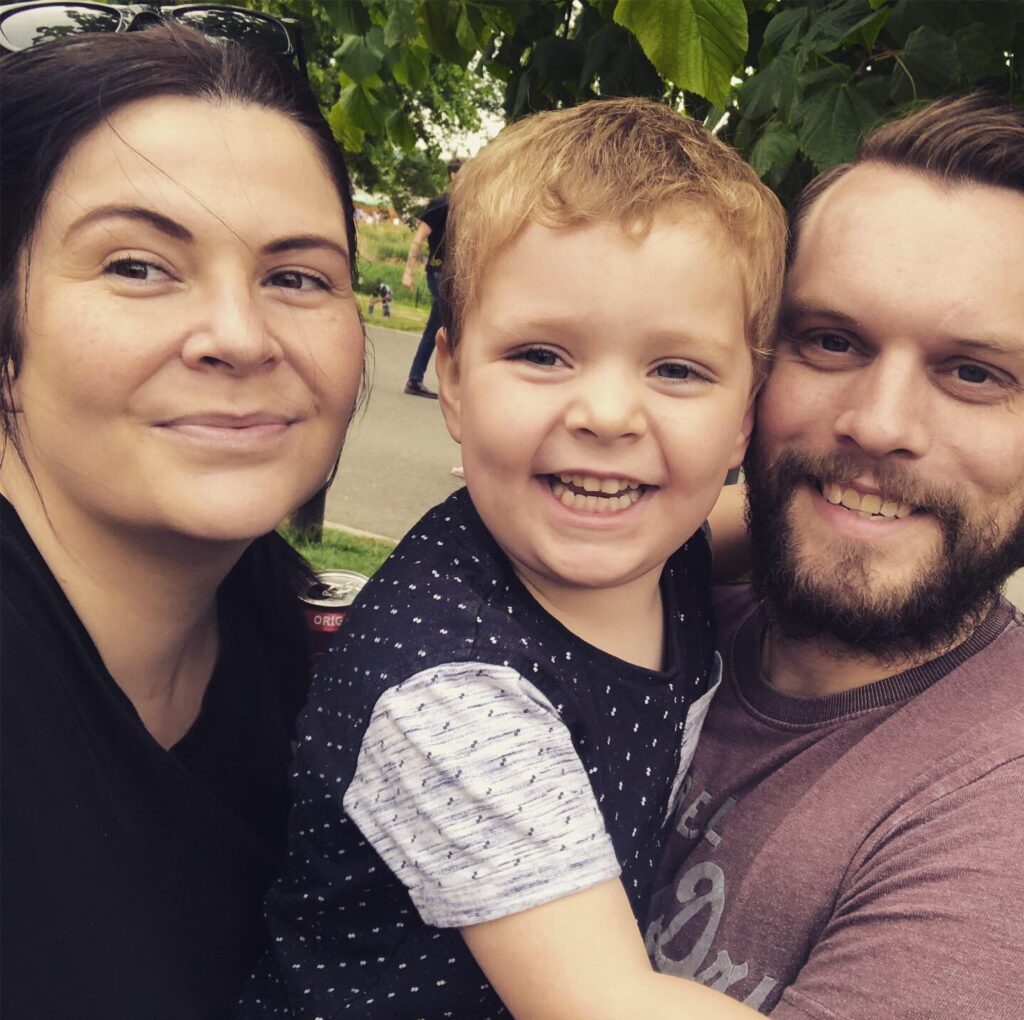
A: When was Finlay first diagnosed and what were some of the first signs of autism that you noticed?
L: So, Finlay was officially diagnosed at just over two and a half years old, so quite young. We noticed probably around 14, 15, 16 months that he had completely started to regress. All the things he could do before, like waving, talking, words he was saying, and eye contact – it was just like a light had gone out. He’d gone from being one child one minute and the next he was a completely different child.
He actually had a lot of health problems when he was born, so he had a heart condition which he had an operation for when he was just a couple of months old. We were actually quite lucky, because with the health things, we were already being seen under the pediatrician for some time. When we raised the concerns we had, they were already used to seeing him, and they could see for themselves that he wasn’t the same as he had been a couple months prior, so yeah. Quite early on for him.
A: Okay, I see. And how did you initially feel when you learned about the diagnosis?
L: Even before he got diagnosed, we started a lot of therapies for him. When we started the therapies, they were very careful about what to say, because they didn’t want to label him with anything before he’d had the official diagnosis, if you like. Before that point, I think I had it in my head that the therapies were what the diagnosis was leading to. But when it actually happened, it definitely took a while to get my head around it. I think because of the health problems he’d had as a baby, it kind of wasn’t as big of a deal. He could have died from his heart condition, but he was still here, so I thought, this is just another hurdle we’re going through.
His dad actually struggled a bit more than me. He was very much in denial that the diagnosis was going to be autism until the moment that we were sitting in the room with the pediatrician when he turned around and said, “Yes, Finlay is autistic. This is what we’re looking at.” He was kind of right at the beginning in that moment, whereas I’d had a couple of months to come to terms with it because I wasn’t in denial. My time was just trying to help him to come to terms with it, and obviously carrying on with Finlay business as usual.
A: It’s interesting to hear your perspective on that! A lot of the other parents I speak with don’t have that extra medical issue you guys had with the heart situation, so it’s interesting to see how that puts things into perspective.
L: Yeah! Even still, I think it was a shock to both sides of the family. In our family, there isn’t anything like this, even with the health conditions he had as a baby. That was a complete shock because everyone is healthy and neurotypical, so it has been a bit of a surprise for sure.
A: Could you tell me some of the things that Finlay struggles with because of his autism and some of the things he excels in?
L: Yep! So some of the things he struggles with: definitely when he meets new people he always regresses, he gets very nervous, so his speech goes so quickly that he’s really hard to understand. He can say “hello” but to actually have a conversation with him doesn’t happen. Also, he’s turning six on Tuesday and he still very much struggles with things like getting himself dressed – buttons, zips, and other things that we would deem simple like putting shoes on or taking them off are difficult for him. He also really struggles with all things that involve coordination. He was only recently completely toilet trained about 2 or 3 months ago, so that’s actually now one of the things he’s doing really well with, but at the beginning it was a struggle.
Things that he excels in: he’s really bright and he loves to read. He started school back in September last year and he has come on leaps and bounds. He’s really good with numbers, too. He will quite happily sit there and count to 100 if you ask him to, and he’s really good with simple addition. He’s absolutely obsessed with dinosaurs and reptiles. I think he could tell you every name and he’s very happy to correct you if you mispronounce one of the names. So yeah, I think socializing is just one of the things he still struggles with, even if it’s getting better, and he can get very overwhelmed if it’s noisy. I don’t know if you guys have them over in America, but he has ear defenders so if it gets too loud he can put them on. That way, he can still hear, but it helps to drown out the sounds – he has sensory issues, so if it’s too noisy he just can’t cope with it.
A: We also have some things that help kids to cope with sensory issues! I’ve definitely heard of lots of people using things like the ear defenders, like when they go to the grocery store and they put them on for the screeching of the shopping cards. Thank you for sharing! I always find it interesting to hear what things children with autism excel in and to hear the different personalities that kids with autism have.
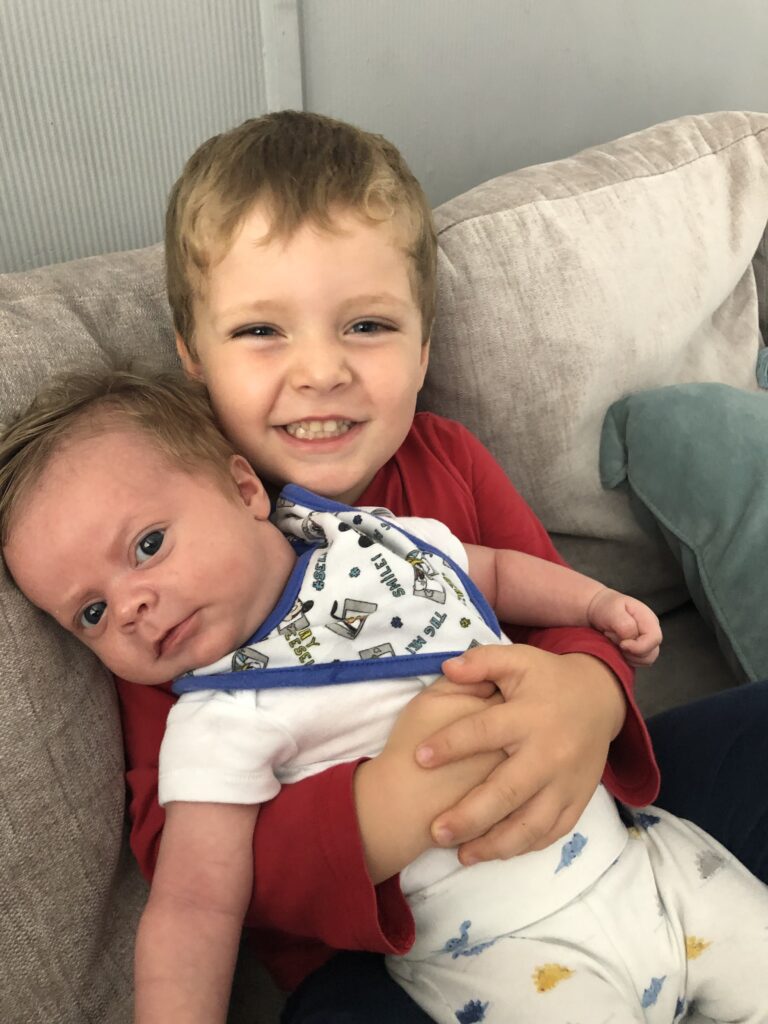
A: What has your experience been so far with the different disciplines of therapy that Finlay receives? And since you’re in the UK, I’m interested to hear if it was difficult to receive these therapies. I’ve spoken with other parents who were in the UK and it was hard for them.
L: Yeah! It seems to be, living over here, that every county that we live in is completely different. Someone in my area but someone 10 minutes away in a different county will have completely different wait times. It definitely seems to depend on where you live as to how quickly you can receive the therapies. We were really lucky. When we first raised our concerns about Finlay, we pretty much got referred straightaway, and it was about 3-4 months before we started. He has speech therapy, occupational health therapy, and a play specialist as well. With his sensory issues, he just didn’t know how to play, so you’d give him toys and he just wouldn’t know what to do with them a lot of the time – he would throw them every and especially couldn’t cope with any toys that were noisy. The play specialist was around to help him try to overcome these issues, and definitely helped with doing messy play with him and teaching us different techniques of how to coax him into playing. We had to teach him things that other parents with neurotypical children take for granted – you could be the worst parent in the world and your child could still learn to play even if they were learning by themselves, but we have to teach him how to play.
Also, Finlay wasn’t really talking up until he was four years old. Compared to some of my friends who we met through support groups with children the same age as Finlay, who started speech therapy later than us, Finlay has come in leaps and bounds. Even though he’s still behind with his speech, he can speak in full sentences now and you can actually have a full conversation with him.
A: I’m really interested to hear more about that! I work with a lot of children who are non-verbal and many parents are worried about their speech difficulties, but they’re still young. Can you tell me a little bit about that?
L: So we started off using PECS cards* when he was about 2 and a half years old, but he was just not interested in doing it whatsoever. When he was doing the PECS cards, he couldn’t point, so it was very much us having this huge book of different cards with different photos on them, and when he was getting frustrated and clearly wanted something, it was us trying to get him to realize that he needed to communicate with us in some way and show us what he wanted so that we could help him. To be honest, I didn’t think that he was ever going to get it in the beginning, because it took him such a long time to even master that. But then slowly but surely, after about a year and a half, he kind of started to pick it up. Like, “Okay, I can give Mommy and Daddy this picture, this is what I want.” Then, the speech therapist started to incorporate words, so then rather than him giving us the card, he had to say the word on the card. That probably took a year. Then, he got to his fourth birthday, and we were still just doing the PECS cards. We had this huge booklet with us when we were out and about. Even though he had already started to learn some words and could sometimes say them without the picture cards, for other people, it was too muddled what he was saying. So we could understand him perfectly because obviously we live with him, but if he was going to go to his grandparents’ house or the preschool nursery, it was very hard for them to get what he was asking for.
Then, all of a sudden, he got to four and it was literally like something got unlocked in his head. He just started saying all these different words, and we slowly started taking the PECS cards away. The more words he learned to say, the more cards we took away so that he had to learn to use the words on his own. At that point, we got transferred to a different speech therapist for him to work on putting words together into a sentence, which was something he really struggled with. If you asked him a question, he would just freeze because he didn’t know how to answer. The new speech therapist, who he’s actually still under now, was more for helping him to use the PECS cards to learn simple sentences. Ever since then, and when he started to read, it’s all just sort of come together for him.
We honestly didn’t think that he would be speaking. We were always hopeful that he would, but we were thinking in our heads he would be 9 or 10 before we ever heard him speak. We did not think in a million years he would be speaking as well as he is now, as early as he is. Actually now, it’s hard to remember him not speaking at all, because he never stops. He asks loads of questions. We’re really proud of him, so I would definitely say don’t give up hope.
A: I definitely agree! The therapist matters a lot and it all depends on the match – a therapist could be really good for one child but is not a good match for another child, so it just depends. And I love hearing that story! It would be nice for other parents to read this and to alleviate some fears about their children being non-verbal.
A: Regarding what you said with support groups, could you tell me a little bit about your experience as a parent with a child with autism? What are your experiences with the support groups and how have they helped you?
L: The support group that we go to is called SNAP. They basically take any children (you don’t have to have a formal diagnosis) and they’re not autism-specific, but the main children that go there are autistic. We would go on a group every Monday with children of various ages, almost like a mother and child play group that you would do for neurotypical children, but it was all parents in the same situation. They have sensory rooms and helper there who specialize in this work, and they offer books and counseling sessions if you’re really struggling. It’s just a safe place – I know that if I take Finlay and he has a meltdown or struggles with something while there, no one will judge us or pay any attention and the helpers would be there to support us. It’s kind of almost given us a break, since the children are really safe there. There’s nothing they can harm themselves with and there’s all kinds of different areas in the two-story building. Each area is sectioned off – you’ve got soft play, sensory room, cars, trains, reading, a specialized computer room. We’re really lucky and we absolutely love it there, and Finlay loves it there. It’s also just nice to be able to talk to other mums who get it. I feel like if you don’t have a child or you don’t know someone with autism, especially when they’re younger and they’re frustrated and they can’t talk, it’s really hard to explain all of it to someone who just doesn’t get it, so I think the support group we have is really lovely. They’re always just a phone call away. Even with COVID-19 going on, they’re still open for us to call them if we need help or support. They really helped with Finlay’s toilet training, giving us tips, and they do webinars with autism specialists and professors that we can pay and go to. They do a lot of work there for girls with autism as well. The friends I’ve made who have little girls with autism definitely have different experiences than those with boys in the support group, who tend to be nonverbal whereas the girls don’t tend to me. The girls have different areas in which they need support, so it’s really good!
A: Wow! I wonder if there’s something like that here but it sounds really amazing. I think it’s always important to have a network of people you can go to who are going through the same thing as you. Like you said, unless you’re a parent or are close to someone and see the struggles for yourself, you wouldn’t truly understand. So I think that’s wonderful.
A: What are some words you would use to describe Finlay, and why?
L: Definitely cheeky. His personality had definitely come out and he’s come out of his shell the more his speech has developed. He’s very cheeky. He will try to get away with everything and will just give you this cheeky little smile. He is really hard to tell off if he’s done something wrong because he just ends up making you laugh, and he knows that as well.
He’s also very quirky. The things he finds funny and the things he tries to do to make us laugh – I don’t think I’ve ever met another child like him. He loves American speech, so he will often try to speak in an American accent, because he’s just obsessed with it. It’s just the little things, like the way he pronounces “zebra” in an American account. When he first got to talking he could have passed as an American because he could just copy accents so well.
He’s also very happy. 9 times out of 10 he’s the happiest little boy ever. He’s also very energetic. He just wakes up and he’s like go go go. It’s like someone’s given him a gallon of coffee first thing when he wakes up until the time that he goes to bed, and he’s very much constantly on the go all the time, just doesn’t stop.
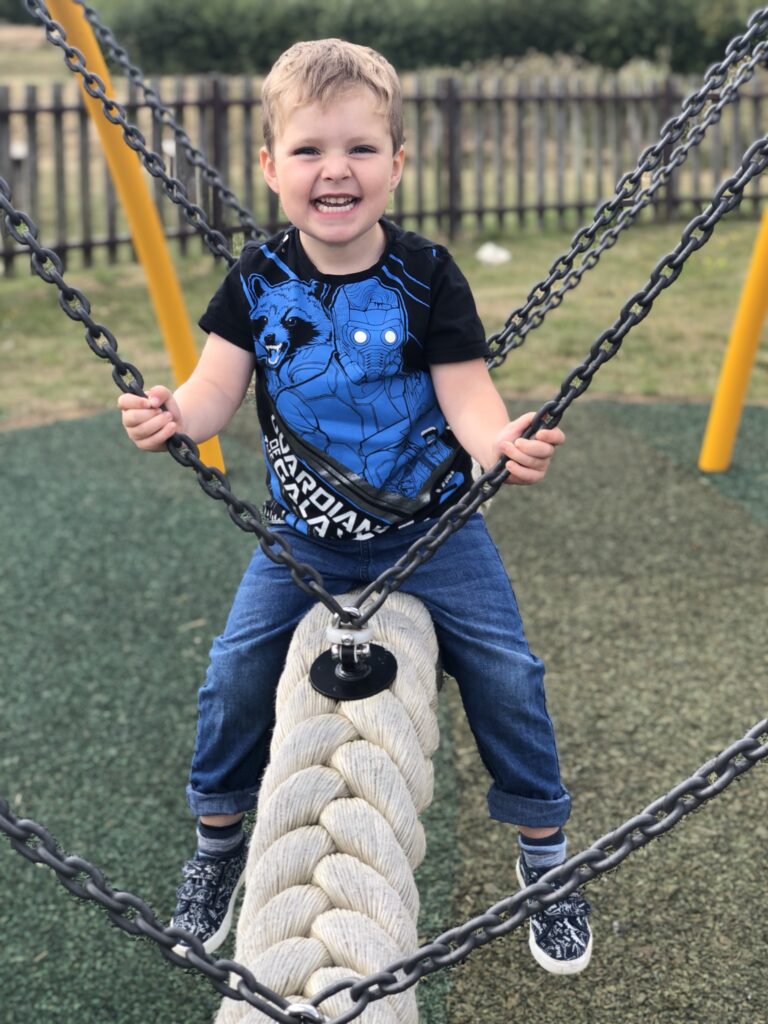
A: I think that is so funny about the accent! I wish I could hear it.
L: My friend who I work with is from America, and Finlay was just so amazed that he’d met someone in real life with that accent. Just very very funny. He loves everything about it. He always says he wants to go to all of these places that he’s seen in these Youtube videos. We have to explain that we don’t have them here like you guys do in America. I think he’d love to go one day.
A: Wow, I can only imagine his reaction if he ever came to visit the US!
A: Lastly, how have you handled stress as a parent with a child on the spectrum and what kinds of words of encouragement or advice do you have for other parents who are dealing with the same thing?
L: I definitely think the first two years were the hardest, when he was completely non-verbal. There was a lot of anger and frustration all the time that led to meltdowns, breaking things, and being more violent. I think that was just really hard to deal with as a parent. You just get told this diagnosis and you don’t know what the future is going to look like. Even now, even though he’s talking, I still worry about what he’s going to do when he comes to finishing school – will he be able to get a job and live alone and find someone to get married to? I definitely think that the worries change with every stepping stone – like, great he’s talking, so in my head I’ll move on to the next thing that I start to worry about. But yeah, the first couple of years are the hardest. Just the unknown. But the older he’s gotten, the more we’ve just had to learn to embrace it all. I think someone without the therapies and the support group we would have crumbled more. Me and his dad are just really lucky in the sense that we’re working together and we’ve got a great support system with our families and our friends who treat him no differently, and we’re just trying to treat him the same as we would any other little boy his age. My advice is just to embrace it and seek out all the therapies you can as early as possible. I think the early intervention we had with him has helped to get him to where he is now.
Also, don’t think that your child will never be able to do something. Honestly, if you had come to me when he was 3 years old and said in the next year he’s going to start speaking in sentences, I would never have believed you in a million years. But with him, sometimes, he just learns to do things out of nowhere, so we’ve just been taking it one day at a time and telling ourselves there isn’t anything he can’t do, because he’s surprised us so much. Down the road, we’ll just try to help him as much as we can to do whatever he wants to do, bless him. It can be really hard, but I think just talking to people and finding that support is really important.
A: Thank you so much to Lauren for sharing her story and all of her experiences raising the wonderful, smart, and cheeky Finlay!
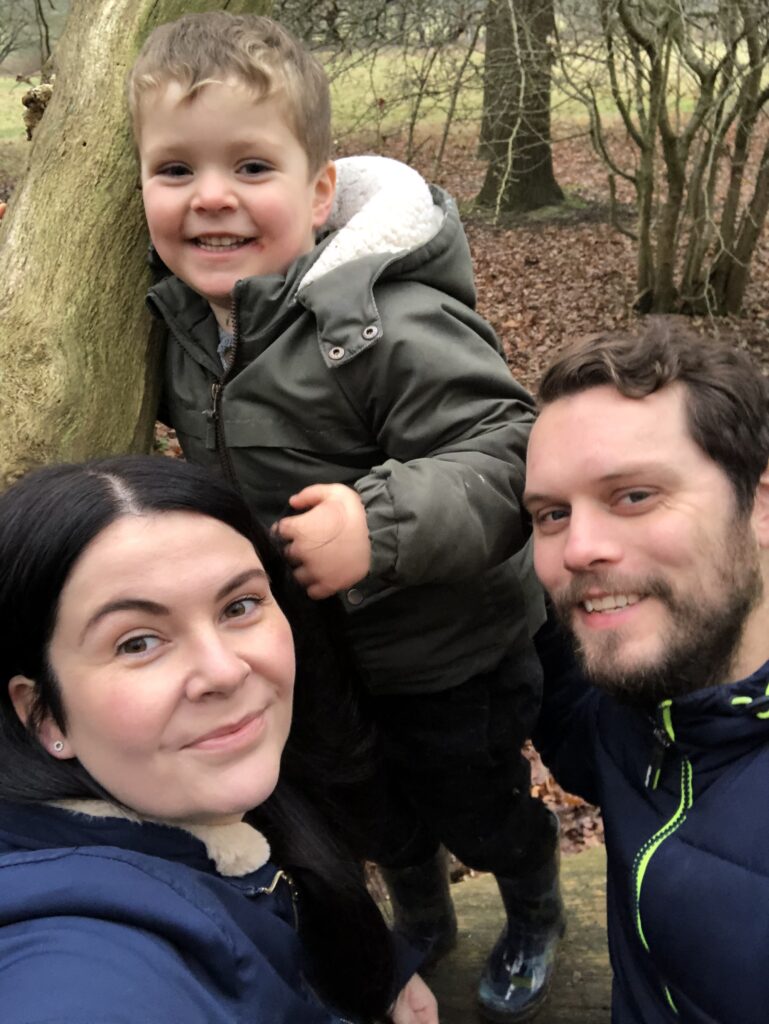
Therapy for Kids with Special Needs in Miami
At Always Keep Progressing Miami, our trained bilingual speech and occupational therapists provide services specifically tailored to each individual child to help grow their independence and fine-tune their speaking and occupational skills. If you are concerned with your child’s development, an SLP or OT can help answer any of your questions!
Contact us for an evaluation if you are interested in our services!
For more resources check our other blogs and follow us on Facebook, Instagram, and LinkedIn!
*PECS cards, or Picture Exchange Communication System cards, are small cards that can be used by people with little or no communication abilities to communicate using pictures. Usually, the cards contain the name of an object as well as a small picture or drawing of the object, to which non-verbal children can point in order to communicate with others. (Source: National Autism Resources – “The Picture Exchange Communication System (PECS)” https://www.nationalautismresources.com/the-picture-exchange-communication-system-pecs/)
London Cover Image by Brigitte makes custom works from your photos, thanks a lot from Pixabay

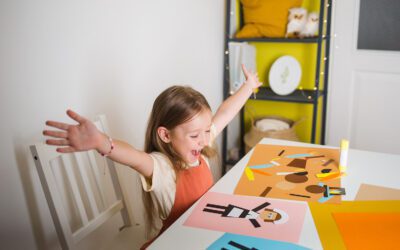


0 Comments